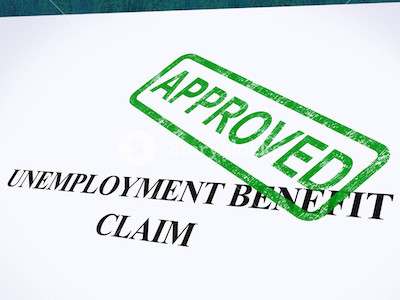
The $10,200 unemployment tax break – does your state allow it?
According to the IRS, more than 23 million people received unemployment benefits in 2020. Typically, unemployment benefits are fully taxable by the IRS and must be reported on your federal tax return. One of the features included in President Biden’s American Rescue Plan Act of 2021 is a tax break on unemployment benefits received last year. It allows each person to exclude up to $10,200 in aid from federal tax. As always, there are stipulations and fine print details you should understand:
• Who: limited to individuals and couples whose MAGI (modified adjusted gross income) was less than $150,000 last year. It’s important to note you must include total unemployment benefits received when determining MAGI.
o To calculate your modified adjusted gross income, take your AGI and “add-back” certain deductions. Many of these deductions are rare, so it’s possible your AGI and MAGI can be identical.
• When: applies this tax filing season – 2020 tax return
• How much: up to $10,200 in unemployment benefits can be excluded per person. Any amount over $10,200 per individual will be included as taxable income.
• How: to determine your total unemployment benefits received last year, look for Form 1099-G that lists unemployment compensation. The information you need is in Box 1. Some states are issuing separate 1099-Gs for state-level benefits vs. the additional $600 weekly supplement that was paid through July 2020. If you’ve received both, be sure to add the two numbers together.
• Where: the tax break applies to federal income taxes only and thirteen states have decided not to follow suit. If you live in Colorado, Georgia, Hawaii, Idaho, Kentucky, Massachusetts, Minnesota, Mississippi, North Carolina, New York, Rhode Island, South Carolina, or West Virginia, you must add back any benefits excluded on your federal tax return when filing your state taxes. The remaining states adopted the new federal rule, or they don’t tax unemployment benefits for a variety of reasons. The thirteen states that haven’t adopted the American Rescue Plan’s tax break may still opt to do so.
If you’ve already filed your taxes: the IRS will adjust qualifying returns automatically, you do not need to amend your tax return. However, there’s an exception to every rule. If you expect your tax return adjustment makes you eligible for a tax credit (or an increase of a tax credit previously claimed), you will need to file an amended tax return.
If you haven’t filed your taxes yet: First, report the full amount of unemployment benefits on Line 7 of Schedule 1. Then include the amount of benefits (as a negative amount) you qualify to exclude on Line 8 of Schedule 1.
As with any last-minute change to the tax code, double-check to confirm you’re completing your return correctly.



